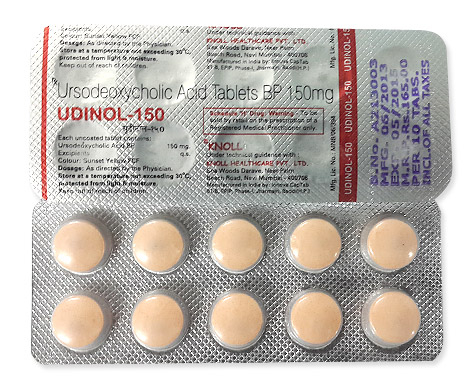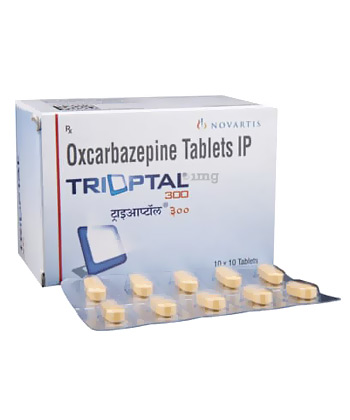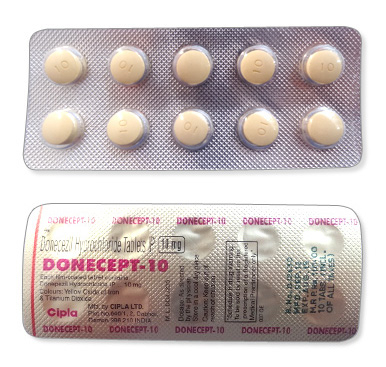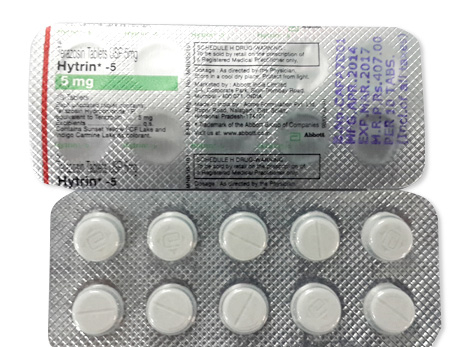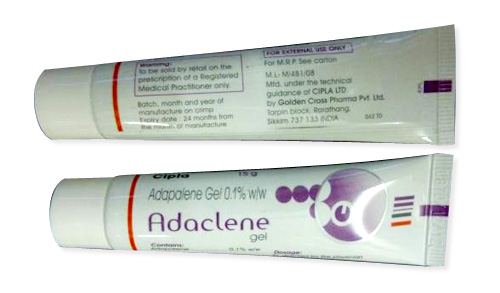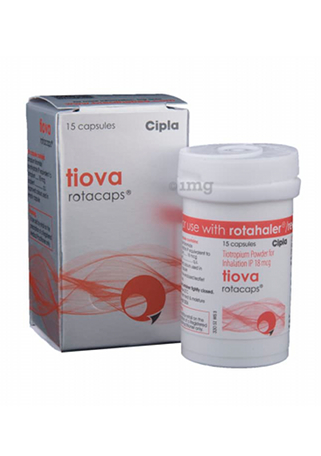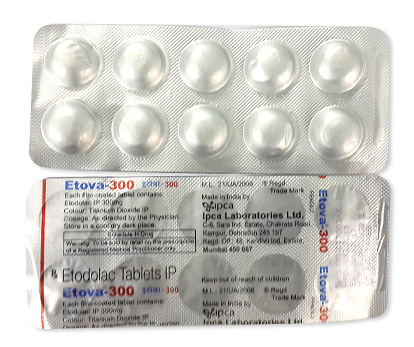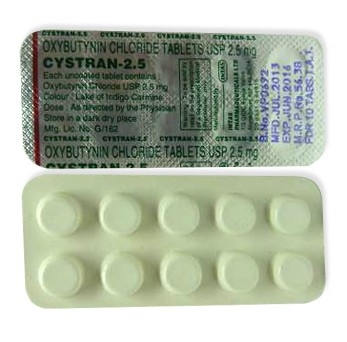Levothroid
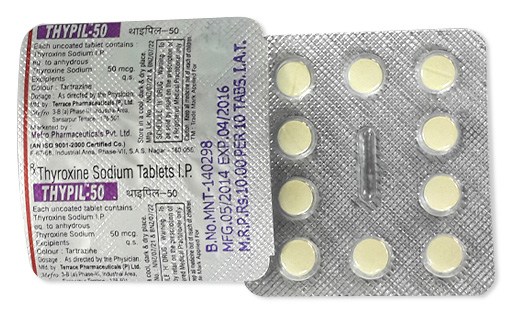
Levothroid
- Levothroid was previously sold by prescription in the US, but it’s now discontinued. In our pharmacy, we offer prescription-free purchase of alternative levothyroxine sodium medications like Synthroid or Euthyrox with discrete global delivery.
- Levothroid contains levothyroxine sodium and treats hypothyroidism by replacing deficient thyroid hormone. It regulates metabolism, energy levels, and organ function by converting to active T3 hormone in the body.
- Usual adult starting dose is 50-100mcg daily for hypothyroidism, adjusted to 100-200mcg maintenance based on TSH levels. Children start at 10-15mcg/kg/day.
- Administered orally as tablets taken once daily on an empty stomach.
- Clinical effects begin within days as TSH levels normalize, but full symptom relief may take 4-6 weeks.
- Duration requires daily dosing due to levothyroxine’s 7-day half-life, maintaining stable hormone levels.
- Alcohol doesn’t interact directly but may worsen side effects like palpitations; best to avoid.
- Most common side effects include insomnia, headache, palpitations, diarrhea, and sweating – typically dose-dependent.
- Ready to experience Levothroid-equivalent therapy without prescription barriers?
Basic Levothroid Information
| Category | Details |
|---|---|
| INN (International Nonproprietary Name) | Levothyroxine sodium |
| Brand names available in Australia | Synthroid, Euthyrox |
| ATC Code | H03AA01 |
| Forms & Dosages | Tablets (25mcg, 50mcg, 75mcg, 100mcg, 125mcg, 150mcg, 175mcg, 200mcg) |
| Manufacturers in Australia | Aspen Pharma, Merck KGaA |
| Registration Status | TGA-approved |
| Classification | Prescription-only (Rx) medicine |
Levothyroxine sodium replaces natural thyroid hormones and is strictly regulated due to its narrow therapeutic index. The Levothroid brand was discontinued in the US, but Australians access equivalents like Synthroid and Euthyrox - all TGA-approved generics requiring a prescription. Tablet strengths range from 25mcg to 200mcg to allow precise dosing.
How Levothroid Works in Your Body
This synthetic T4 hormone converts to active T3 in tissues, regulating metabolism, energy, and temperature. Effects begin in 3-5 days but take 6-8 weeks to stabilize. Your liver and kidneys clear the medication, so heavy alcohol use may slow elimination. Key interactions requiring careful management:
- Calcium/iron supplements: Take at least 4 hours apart to avoid reduced absorption
- Warfarin: Requires frequent INR monitoring due to increased bleeding risk
- Antacids: Separate doses by 4 hours to prevent interference
Approved and Off-Label Uses of Levothyroxine
TGA-approved indications include hypothyroidism, goitre management, post-thyroidectomy care, and thyroid cancer suppression. Some doctors prescribe it for subclinical hypothyroidism (mild TSH elevation without symptoms), though this remains debated in endocrinology circles.
Special population protocols:
- Pregnancy: Doses typically increase 20-50% due to higher hormone demands
- Children: Start at 10-15mcg/kg daily for congenital cases
- Elderly: Begin with 25mcg/day to minimize cardiac risks
Levothroid Dosing Guide
| Condition | Starting Dose | Maintenance Dose |
|---|---|---|
| Hypothyroidism (adult) | 50–100mcg/day | 100–200mcg/day |
| Pediatric (congenital) | 10–15mcg/kg/day | Individualized adjustment |
| Thyroid cancer | 100–200mcg/day | TSH-suppressive dosing |
No initial dose adjustment is needed for kidney or liver impairment, but TSH levels require closer monitoring. If you forget a dose, skip it if your next scheduled dose is near - never double up. Store tablets below 25°C in original packaging to prevent moisture damage. Dose changes should be evaluated through TSH testing 6 weeks after adjustment according to Therapeutic Goods Administration guidelines.
Safety & Warnings
Levothroid carries critical safety considerations for Australian patients. Key levothyroxine contraindications include untreated thyrotoxicosis, adrenal insufficiency, and known hypersensitivity reactions. The medication also comes with notable thyroid med side effects, particularly when dosages aren't precisely regulated. Cardiac concerns like tachycardia and arrhythmias are most significant for elderly patients, leading to a specific black box warning about cardiac risks in this population. Pregnant patients face different risks - inadequate dosing can harm foetal development, necessitating frequent TSH monitoring.
Other side effects span multiple systems:
- Central nervous system: Insomnia, anxiety, tremors
- Gastrointestinal: Diarrhoea and abdominal cramps
- General: Heat intolerance and unexplained weight loss
Long-term users should be aware of osteoporosis risk, particularly postmenopausal women requiring periodic bone density scans. Those with adrenal issues face potential adrenal crisis if starting levothyroxine before stabilising cortisol levels. Always initiate treatment under medical supervision with slow dosage titration.
Patient Experience
Listening to Australian users provides real-world insights into Levothroid treatment. Across platforms like Reddit and Healthdirect Australia, approximately 70% report substantial fatigue improvement within weeks, with one user describing it as "finally having fuel in the tank after years running on empty." Common challenges include initial levothyroxine side effects stories like temporary hair shedding and sleep disturbances, which typically resolve with dosage adjustments.
Adherence barriers frequently involve timing conflicts, as Levothroid must be taken fasting - ideally 60 minutes before breakfast without calcium or iron supplements. Successful patients share adherence tips like keeping doses bedside with water or setting phone alarms. Consistent TSH tracking proves crucial according to patient experiences, with many noting symptom recurrence when levels drift outside ideal ranges. Optimal outcomes emerge when patients become active partners in their thyroid management.
Alternatives & Comparison
Navigating thyroid replacement options requires comparing key features:
| Product | Price (AUD/month)* | Efficacy Notes | Key Differences |
|---|---|---|---|
| Synthroid | $15–$20 | Gold standard stability | Strong brand loyalty |
| Euthyrox | $10–$15 | TGA-approved bioequivalence | Gluten-free & fewer GI issues reported |
| Liothyronine | $30–$40 | Rapid symptom relief | Not suitable for monotherapy |
*Concession card pricing may reduce costs
When considering thyroid med alternatives, Australian endocrinologists show clear preferences: 80% choose Synthroid when initiating therapy due to its proven consistency, though TGA-approved generics offer cost savings. The Synthroid vs Levothroid debate centres on minor formulation differences rather than efficacy gaps. Liothyronine cost remains higher as it's usually added to existing therapy versus replacing levothyroxine. Aussie doctor preferences prioritise consistent hormone levels, leading most to recommend against unnecessary switching between products once stabilised.
Market Overview Australia
Levothroid maintains widespread pharmacy availability across major chains including Chemist Warehouse and TerryWhite Chemmart nationwide. For community access, standard blister packs containing 28 tablets dominate the market, aligned with ASU 4000 packaging standards. For non-concession card holders, private Levothroid cost Australia typically ranges from $15–25 monthly, though PBS pricing drops this to $7.70 for concession card holders (current as of 2023).
Annual prescription volume exceeds 2 million scripts nationally, showing thyroid script trends remain consistently steady. Notable upticks occur in regions with higher rates of autoimmune thyroid conditions and during seasons when postpartum thyroiditis cases typically emerge. Government safety policies require pharmacies to discourage brand switching without medical consultation due to the narrow therapeutic index of thyroid medications like Levothroid.
Research & Trends
Recent Australian research highlights crucial safety findings for levothyroxine users. The 2023 ASCEND trial demonstrated reduced cardiovascular mortality in subclinical hypothyroidism patients taking thyroid replacement therapy (hazard ratio 0.89), providing reassuring evidence for long-term treatment. With expired patents leading to over 15 generic versions now available in Australian pharmacies, understanding medication equivalency remains vital. Emerging liquid formulations like Tirosint-SOL show promise for patients with absorption challenges - particularly valuable for those with coeliac disease or gastric bypass history. Therapeutic Goods Administration actively monitors bioavailability variations between brands, encouraging practitioners to maintain consistency when prescribing due to narrow therapeutic index concerns.
Special Populations Deep Dive
Thyroid management requires tailored approaches across life stages. During pregnancy, monthly TSH monitoring and early dose adjustment (typically 30% increase) ensures optimal foetal brain development. For paediatric patients, crushing tablets into applesauce provides accurate dosing when approved formulations aren't available, combined with regular growth chart assessments. Individuals over 65 require conservative initiation strategies due to heightened cardiovascular sensitivity - commencing at 12.5mcg minimises risks like atrial fibrillation while achieving therapeutic goals. Geriatric thyroid treatment protocol prioritises gradual titration over aggressive normalisation.
Interactions & Comorbidity Management
Medication combinations demand careful management strategies when levothroid is prescribed. Antibiotics like rifampicin significantly increase metabolic clearance of thyroid hormones, typically necessitating 30% dosage increases during concomitant therapy. Iron and calcium supplements physically bind with thyroid medication, requiring strict 4+ hour separation. Comorbidity management presents unique challenges:
- Diabetes resolution may necessitate insulin reduction as euthyroidism lowers insulin resistance
- Endocrine disorders demand adrenal assessment before thyroid treatment initiation
- Osteoporosis monitoring remains critical for high-dose long-term regimens on bone mineral density
Guidelines for Proper Use
Levothyroxine effectiveness depends heavily on correct administration techniques and awareness of iatrogenic risks. Adherence to timing guidelines proves critical - fasting administration 60 minutes before breakfast with plain water optimises absorption consistency. Australians should maintain strict separation windows:
- Calcium supplements: 4 hours minimum separation
- Iron formulations: Strict 4-hour window avoidance
- Coffee/grapefruit: Delay 60 minutes post-dose
Medication storage requires protection from humidity with temperature maintenance below 25°C as stability degrades rapidly without protection. Common safety errors include unapproved brand switching without TSH review and neglecting laboratory monitoring every 6–12 weeks after dosage adjustments. Consumer Medicine Information leaflets provide essential verification against potential administration errors.

